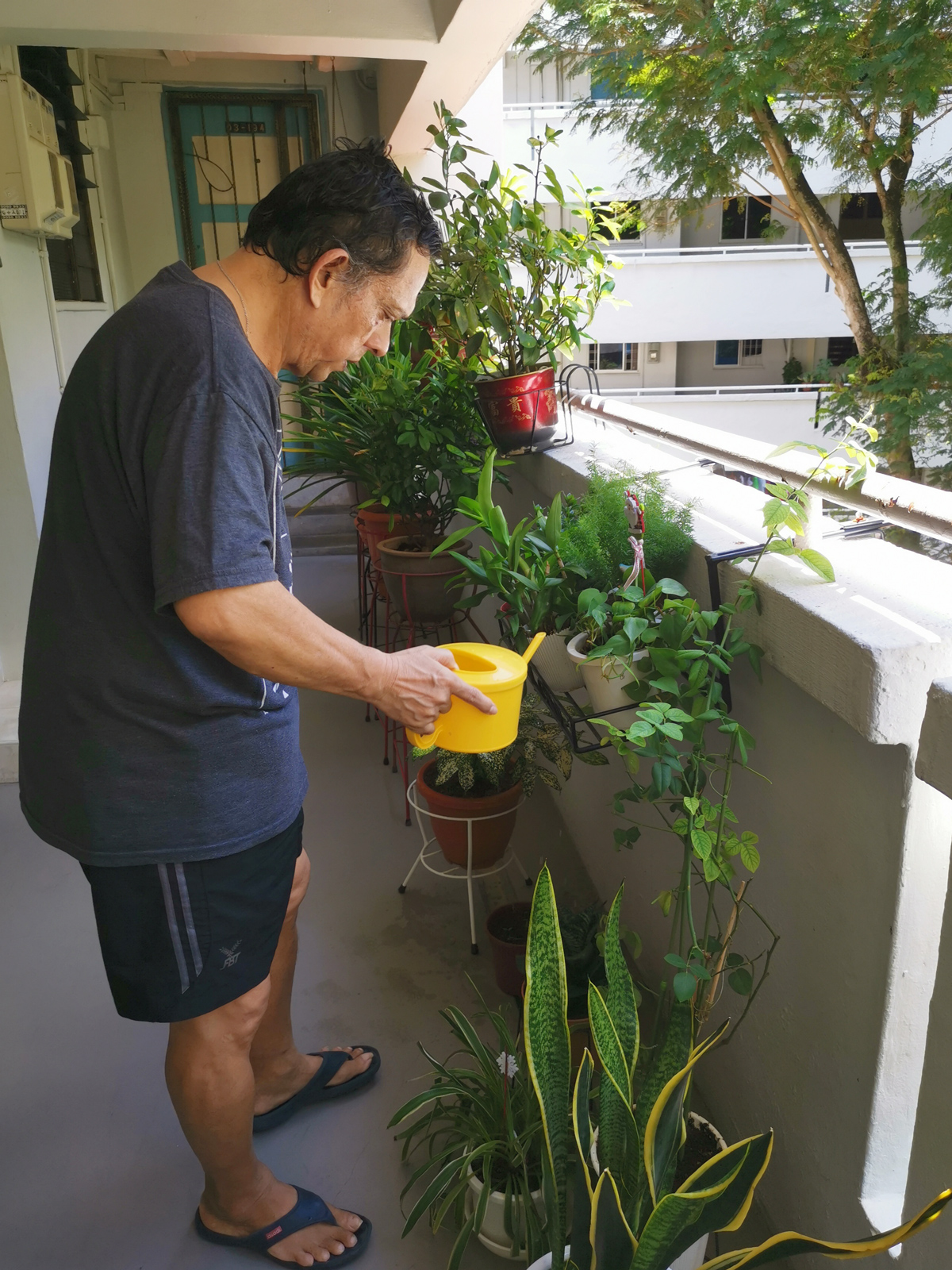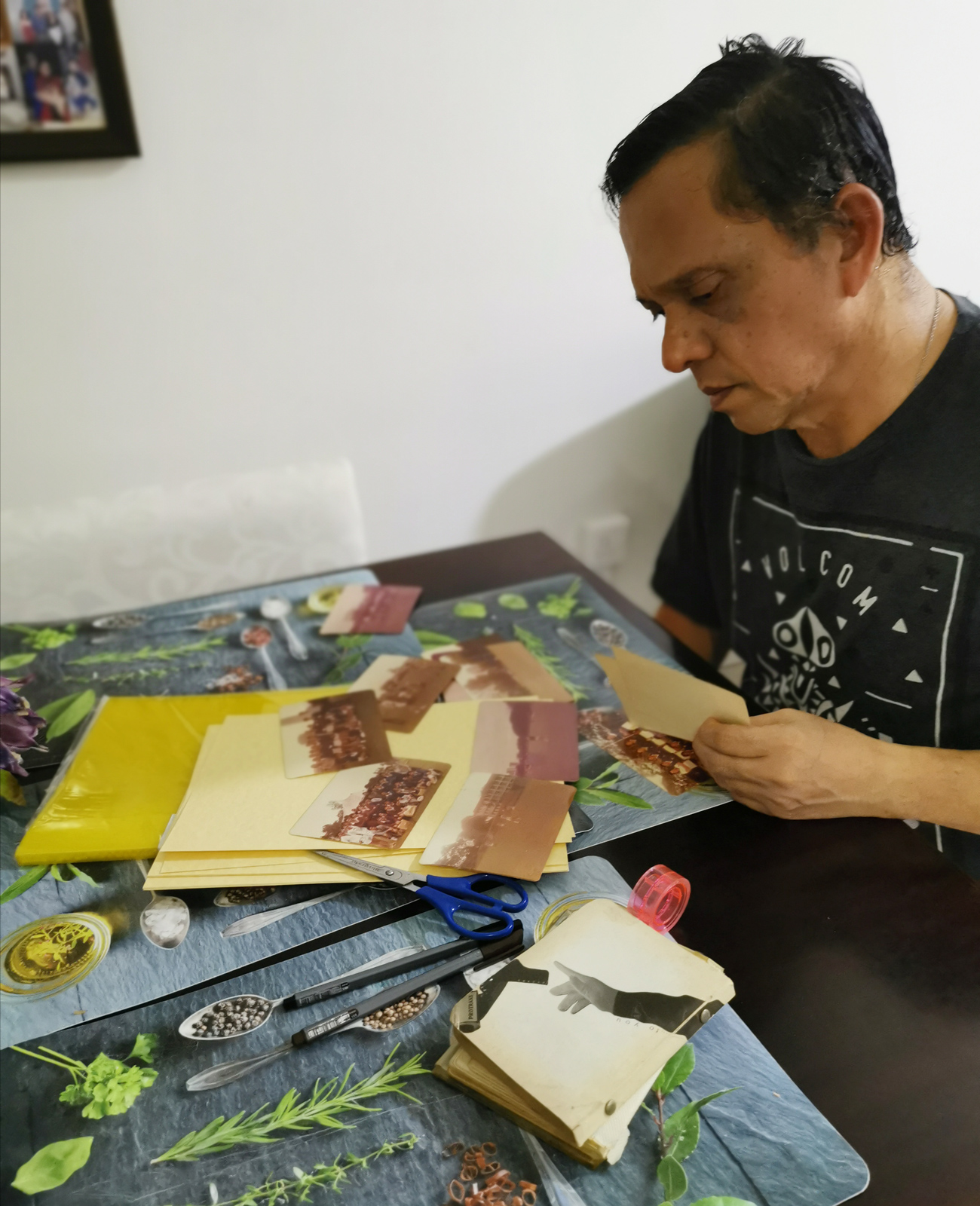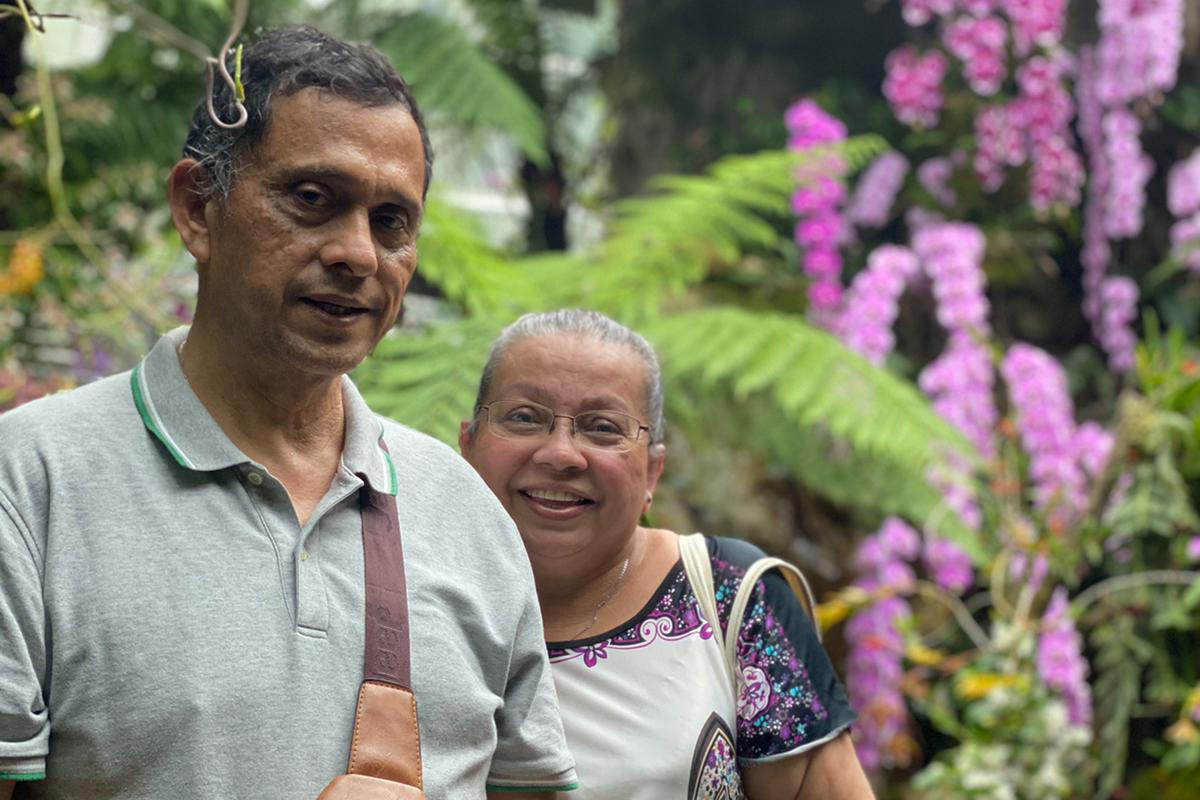As the primary caregiver to her husband, Rodney Paglar who is living with dementia, Jacinta’s journey has been filled with ups and downs. But through it all, she continues to do her best to support Rodney in all that he does and empowers him to live his life meaningfully. Theirs is a story of love, courage, and perseverance.
Jacinta sheds light on Rodney’s diagnosis, their shared challenges, and the steps they take together to overcome them.
By Jacinta Conceicao, Dementia Singapore’s Voices for Hope programme graduate
My husband Rodney and I have been married for 30 years now and I see him as my best friend, confidante, and care partner on our dementia journey. We have been blessed with two children, Luke who is 27 years old, and Timothy who would have been 25 years old this year.
Timothy was born with special needs and was living with spastic quadriplegia and had epilepsy. As such, right after he was born, I decided to stop working to be a full-time mum and caregiver for the very first time. Timothy lived till age 16 and passed away in November 2012 when Rodney and I were both in our early 50s.
I’ve always known Rodney to be a unique combination of humorous, witty, and introverted. However, in the last year of Timothy’s life, I saw him retreat into his shell even more, becoming more closed off with his emotions and leaving a lot of the decisions to be made for Timothy’s palliative care to me. I found myself having to deal with loss and grief alone and although I could not understand why, I never imagined that there was something medically wrong with Rodney’s behaviour at the time.
The diagnosis
In August 2019, Rodney was diagnosed with dementia when he was 59 years old. Up to that point, he was still working as a safety coordinator for a private construction company.
During that period of time, Rodney started displaying signs of forgetfulness and developed problems with reading, writing, and even his vocal ability. He would take a lot of sick leaves when he had to give presentations to his bosses and workers, and would even bring home the workers’ time logs for me to complete as he could not remember how to write out numbers or words. He grew increasingly depressed with each passing day, choosing not to speak about his issues even to me.
It was only during a regular medical checkup that he was referred to the National University Hospital (NUH) Neuroscience Department for a formal diagnosis. Before that, my family and I thought that Rodney’s change in behaviour could be due to a mild stroke. He was sent for a CT scan at NUH and I still remember waiting anxiously for the results but having to put on a brave front for him. When the results finally came in, we were extremely shocked to find out that Rodney had Alzheimer’s Disease.
With that revelation came a flurry of emotions. We had just moved into our new home and now I found myself needing to become a caregiver yet again, this time to my spouse who had been my rock, and someone whom I looked to for advice and support.
Joining the Dementia Singapore family
In early-2020, Rodney got his second diagnosis for Alzheimer’s Disease after he had a lumbar puncture. It was through the National Neuroscience Institute that we were linked up with Dementia Singapore (formerly known as Alzheimer’s Disease Association) and its programmes and services. I see Dementia Singapore as a beacon of hope and light in guiding us through this new journey.
We first joined the Voices for Hope (VFH) programme where we met other families in the dementia community. VFH enabled us to make many new lifelong friends and was a platform for me to gain more information about how to better care for Rodney with the support of the organisation and other caregivers.
VFH was where I first saw Rodney change from being extremely quiet to laughing and interacting with others more. Seeing him happier was almost like a weight off my shoulders as it made me hopeful in moving forward in our dementia care journey.
Our struggles during Covid-19
The Covid-19 lockdown in 2020 saw Rodney’s routine change immensely as he was not able to leave our home, do his daily exercises, or go for our regular outings as a family.

Understanding the social distancing rules and the need to consistently wash his hands became a challenge. Rodney seems to be quite adverse to the feel of water running over his hands and would try his best to avoid washing them.
For the most part, he spends a lot of time helping me around the house, with our little garden space, and even learned to take pictures on his mobile phone when he goes for his short walks. As his dementia progressed however, I found that all the routines we had set up had to keep changing to suit his needs.
Now, Rodney experiences hallucinations and increased anxiety. When he gets an episode, it can get extremely difficult to calm him down as he would see me and my son as strangers and would get fearful. In those moments, we tell ourselves to stay calm and patient and try our utmost to engage him in a way where his fears are dispelled.
The steps we take together
Rodney cannot remember my name and a lot of our shared memories anymore. Even then, I am thankful that we have this time to go over these memories together and make more new ones. Sometimes I use old photographs to jog his memory and have started scrapbooking. The focus is now to get him to stay active, healthy and try to engage him to interact with the family during our outings together.

Yes, every day is a new day for us and sometimes I do get to see the Rodney that I first met in 1985! Other times, it is truly heartening to watch him work through his difficulties and then to see a smile on his face when he has done well and is happy with himself.
In times where I feel drained, I will take some time to self-care and recharge. I also find advocating for dementia and sharing my story with others deeply therapeutic for me. For me, it is all about taking it one day at a time together with Rodney.
My role
As a carer, I will do all that I can to enable and empower Rodney to continue to live his life in the best way that he can, despite dementia. I will be there for him for as long as he needs me.
To learn more about the Voices for Hope programme, visit https://dementia.org.sg/voices.



